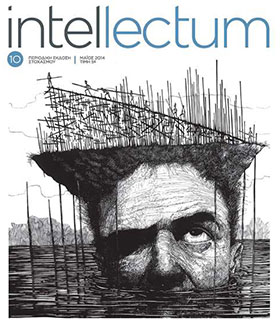Abstract: The position of the Standing Holy Synod resulting from the Agreement on Common Law Marriage brings to light the development of a certain legal morality within the Church. As the Church’s theological discourse is based solely upon intimidating configurations (sin – punishment), the essence of sin is downgraded to the status of a breach of divine law
The rationalization of theology, which was established by way of scholasticism, has detached morality from spiritual life and led to the development of a legal morality, a nominalism which has distanced the Church from its eschatological vision and secularized it.
For Christian metaphysics and theology, however, rationalization does not entail an ‘abandonment of rational thought, methodological rigor, [and/or] critical thinking’. On the contrary, it implies that the secularized church incorporates, or blends, with essentially ‘secular’ elements, such as authority and wealth, thereby setting aside some of its primary principles, but mainly its spiritual discourse.
The Hellenic church, therefore, in line with the intention of the state to provide institutional recognition to relations which, despite not being legally irrelevant, remained unregulated, has expressed its concerns regarding the matter, either in reference to isolated instances and in a spirit of prominence, as illustrated by the position of
Archbishop Ieronimous who ‘respects people’s choices who want something different from the church’, or in more official and intimidating terms, as in the position of the Standing Holy Synod (SHS) which characterized all forms of extra-marital relations as prostitution, whilst also making a point of referencing holy Canons.
Read full article: https://intellectum.org/articles/issues/intellectum4/en/ITL04p141143_Remarks_on_an_Era-Church_and_Fear.pdf

